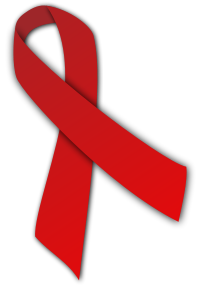
Photo from wikipedia
Despite enormous increases in the proportion of people living with HIV accessing treatment in sub-Saharan Africa, major gender disparities persist, with men experiencing lower rates of testing, linkage to treatment,… Click to show full abstract
Despite enormous increases in the proportion of people living with HIV accessing treatment in sub-Saharan Africa, major gender disparities persist, with men experiencing lower rates of testing, linkage to treatment, and retention in care. In this study, we investigated the barriers and facilitating factors to HIV treatment among men in uThukela, a high-HIV-burdened district in KwaZulu-Natal province, South Africa. We conducted a qualitative study including nine Black African male participants who were recruited from 18 health care facilities in uThukela District, KwaZulu-Natal province. In-depth interviews were conducted with participants who linked to care and those who did not link to care at 3-month post HIV diagnosis. We used Atlas.ti for thematic analysis. Data were coded and linked to broader themes emerging across interviews. The median age was 40 years (interquartile range [IQR]: 31–41). This study identified the following key themes which emerged as barriers to HIV treatment among men in uThukela District: lack of emotional readiness, perceived medication side effects, fear of treatment non-adherence, perceived stigma and confidentiality concerns, and poor socioeconomic factors. We identified the following enabling factors to HIV treatment among men: fear of HIV progressing, acceptance of status, disclosure, support from family and friends, positive testing experience, and accessibility of antiretroviral treatment. This study revealed barriers and enabling factors to HIV treatment among men. These factors are important to inform the design of targeted intervention strategies aimed at improving linkage and retention to HIV treatment among men.
Journal Title: American Journal of Men's Health
Year Published: 2022
Link to full text (if available)
Share on Social Media: Sign Up to like & get
recommendations!